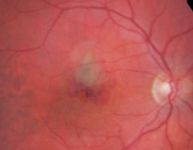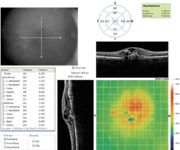Supplements are beneficial in tackling vision loss
Age-related macular degeneration (AMD) is a growing problem throughout the world and is influenced by genetics and behavior.





Carotenoids and retina health

In addition to antioxidant properties, lutein and zeaxanthin are suggested to protect photoreceptors by activating intracellular signaling pathways. These two carotenoids and their metabolites also have been shown to affect cell signaling and modulate the expression of genes, including those involved in detoxification of destructive reactive oxygen species. Lutein and zeaxanthin both have been suggested to regulate apoptosis and angiogenesis, and in addition to their anti-apoptotic effects, lutein and zeaxanthin stimulate the differentiation of photoreceptors, which increases the expression of opsin, the protein that binds to vitamin A retinol.
Adequate vitamin A intake is necessary for optimal vision and particularly important for night vision in older people. Unfortunately, excessive amounts of supplemental beta-carotene interfere with the absorption of lutein and zeaxanthin (one reason that the Age-Related Eye Disease Study 2 has eliminated beta-carotene in one arm of the study).
Newsletter
Want more insights like this? Subscribe to Optometry Times and get clinical pearls and practice tips delivered straight to your inbox.




.png&w=3840&q=75)











